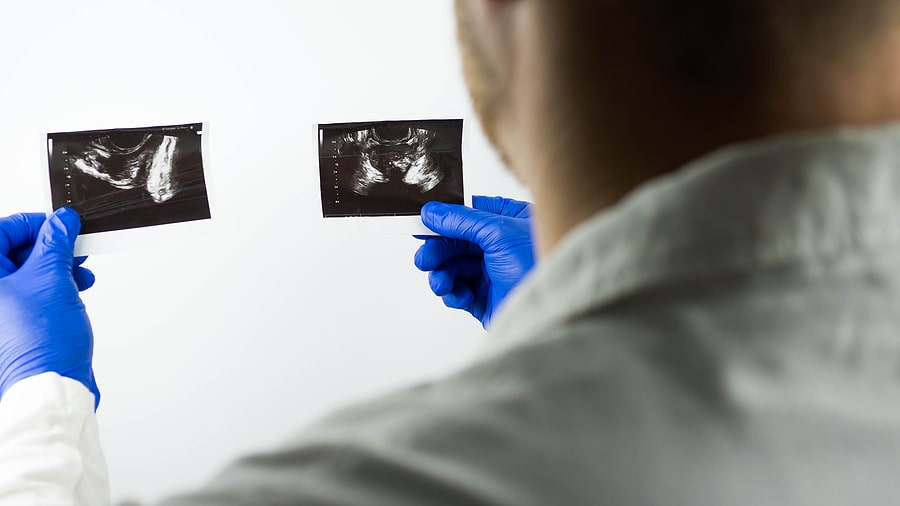Different Symptoms of BPH vs. Prostate Cancer
Other than skin cancer, prostate cancer is one of the most common cancers for American men. One in nine men will be diagnosed with prostate cancer during his lifetime, according to data from the American Cancer Society.
Just because prostate cancer is so common, that doesn’t mean the symptoms you’ve been experiencing are, in fact, cancer. Many symptoms of prostate cancer are the same for other conditions like infections or abnormal cell growth, also known as BPH. The symptoms of BPH vs prostate cancer can be similar. This is what you need to know and when to see a doctor.
The Basics of Prostate Cancer
Prostate cancer occurs when the cells in the prostate, a male reproductive gland, begin to grow out of control and develop into cancerous cells.

The prostate gland is only found in males and is the gland that creates some of the fluid that is in semen. It is a walnut-sized gland located below the bladder and in front of the rectum. The urethra – the tube that carries urine and semen to the penis – travels through the center of the prostate.
Nearly all prostate cancers are adenocarcinomas, which grow from the gland cells and grow slowly.
BPH and Other Conditions
There are other conditions that affect the prostate that can have similar symptoms as prostate cancer. Those conditions include benign prostatic hyperplasia (BPH) and prostatitis. BPH is a noncancerous enlargement of the prostate gland caused by aging, testosterone and genetics.
BPH is not cancer but has similar symptoms.
Another condition is prostatitis, an inflammation of the prostate gland that occurs from bacterial infection. Roughly half of all men will be affected by prostatitis during their lives.
Is BPH cancer?
The next logical question is if an enlarged prostate can mean cancer.
If BPH is an enlargement of the gland, does an enlarged prostate mean you have cancer? No, BPH is not cancer.
Can BPH develop into cancer? No, BPH will not develop into cancer. BPH is a separate condition.
Furthermore, having an enlarged prostate gland does not mean you have cancer or will get cancer.
The National Cancer Institute indicates the prostate gland will grow larger with age. The gland starts out the size of a walnut when a man is 20. By the age of 40 it grows to the size of an apricot and by 60 it grows to the size of a lemon. Because of this natural growth progression throughout a man’s life, it may begin pressing against the bladder and the urethra, making a man feel like he has to urinate more frequently, which is one of the symptoms of prostate cancer.
BPH vs. Prostate Cancer Symptoms
So what are the symptoms of prostate cancer and BPH? If you have a lump or hard prostate, does that mean you have cancer? Symptoms of both are often similar.
Symptoms of Prostate Cancer
- Problems urinating
- A slow or weak urinary stream
- Needing to urinate more often
- Blood in the urine or semen
- Difficulty getting an erection
- Pain in the hips, back or chest
- Weakness or numbness in the legs or feet
- Loss of bladder or bowel control
Symptoms of BPH
Symptoms of BPH are similar, but mostly affect urination:
- Trouble starting a urine stream or making more than a dribble
- Urinating frequently
- The feeling the bladder is not fully emptied
- Strong or sudden urge to go
- Pushing or straining to begin urinating
- Difficulty getting an erection or difficulty ejaculating
- Blood in the urine
Pain in the hips and back is often a result of cancer spreading or pushing on the spinal cord. This is typically not experienced in patients who have BPH. With BPH, the growing prostate narrows the urethra, leads to hypertrophy of the bladder and impedes the proper flow of urine, which is why BPH primarily has urination-focused symptoms.
Some patients also have a hard prostate. This is an indicator you have a nodule or tumor. Nodules and tumors can be both benign and malignant, so having a hard prostate may be an indicator of cancer, but it can also be prostate stones.
Prostate stones develop around or in the prostate gland and are caused by blockages due to chronic inflammation or BPH. A study published in the World Journal of Men’s Health indicated, roughly 80% of prostate stones are made of calcium phosphate. The stones are not cancerous.
When to See a Doctor
The bottom line is if you are experiencing symptoms, there are several conditions this may point to. Catching cancer early is an important part of the prognosis, and because BPH shares so many symptoms, it’s best to ensure your safety by having it checked regularly. It is best to see a urologist who can help determine the cause of the symptoms and how best to treat it. Contact the specialists at Advanced Urology to schedule an appointment today.
RELATED ARTICLES
OUR VALUES
Our mission is to better human lives through personalized healthcare and innovation.
We are committed to providing compassionate and extraordinary care by acting with attention, joy and authenticity.
We advance healthcare by aligning patients, providers and payers.
We aim to lead the way by way of innovation, excellence and the drive to change and make a lasting difference.
Patient experience is our top priority. We show this by operating with integrity, listening, and building trust with our patients and one another.
We are committed to teamwork, family spirit and embracing each other’s resourcefulness, resilience and dedication.

